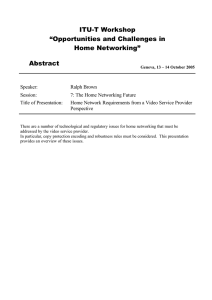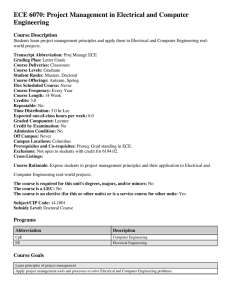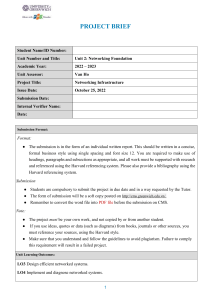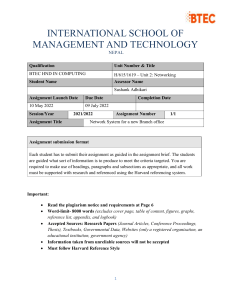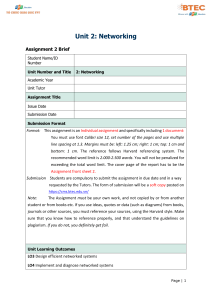ECE 8101 (Approved): Advanced Topics in Networking
advertisement
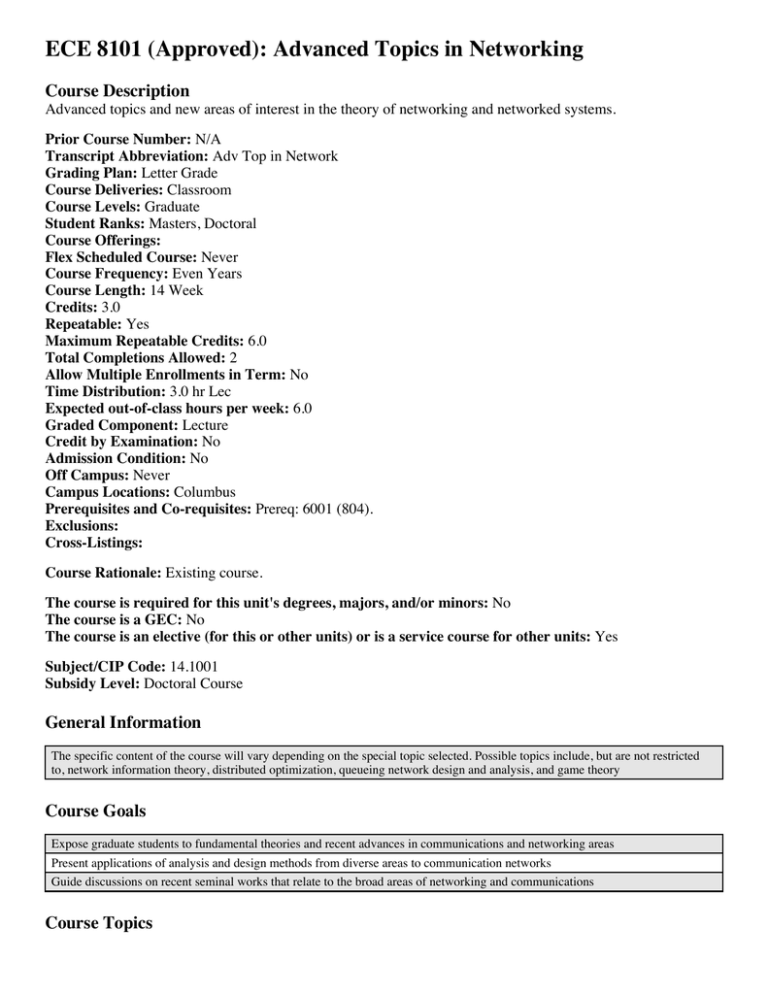
ECE 8101 (Approved): Advanced Topics in Networking Course Description Advanced topics and new areas of interest in the theory of networking and networked systems. Prior Course Number: N/A Transcript Abbreviation: Adv Top in Network Grading Plan: Letter Grade Course Deliveries: Classroom Course Levels: Graduate Student Ranks: Masters, Doctoral Course Offerings: Flex Scheduled Course: Never Course Frequency: Even Years Course Length: 14 Week Credits: 3.0 Repeatable: Yes Maximum Repeatable Credits: 6.0 Total Completions Allowed: 2 Allow Multiple Enrollments in Term: No Time Distribution: 3.0 hr Lec Expected out-of-class hours per week: 6.0 Graded Component: Lecture Credit by Examination: No Admission Condition: No Off Campus: Never Campus Locations: Columbus Prerequisites and Co-requisites: Prereq: 6001 (804). Exclusions: Cross-Listings: Course Rationale: Existing course. The course is required for this unit's degrees, majors, and/or minors: No The course is a GEC: No The course is an elective (for this or other units) or is a service course for other units: Yes Subject/CIP Code: 14.1001 Subsidy Level: Doctoral Course General Information The specific content of the course will vary depending on the special topic selected. Possible topics include, but are not restricted to, network information theory, distributed optimization, queueing network design and analysis, and game theory Course Goals Expose graduate students to fundamental theories and recent advances in communications and networking areas Present applications of analysis and design methods from diverse areas to communication networks Guide discussions on recent seminal works that relate to the broad areas of networking and communications Course Topics Topic Lec Rec Lab Cli IS Sem FE Wor Advanced topics and new areas of interest in the theory of networking and networked systems ABET-EAC Criterion 3 Outcomes Course Contribution *** ** ** * ** College Outcome a An ability to apply knowledge of mathematics, science, and engineering. b An ability to design and conduct experiments, as well as to analyze and interpret data. c An ability to design a system, component, or process to meet desired needs. d An ability to function on multi-disciplinary teams. e An ability to identify, formulate, and solve engineering problems. f An understanding of professional and ethical responsibility. g An ability to communicate effectively. h The broad education necessary to understand the impact of engineering solutions in a global and societal context. i A recognition of the need for, and an ability to engage in life-long learning. j A knowledge of contemporary issues. k An ability to use the techniques, skills, and modern engineering tools necessary for engineering practice. Additional Notes or Comments Updated abbreviation, prereqs, Prepared by: Betty Lise Anderson goals and topics to match university format 3/20/12
